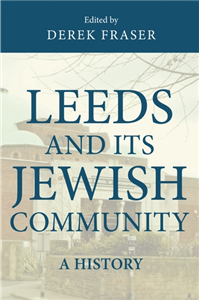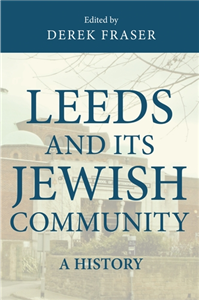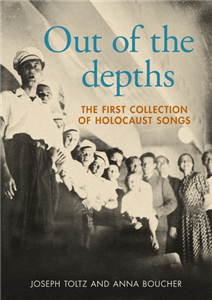Your Search Results
-
Promoted Content
-
Promoted Content
-
 Trusted Partner
Lifestyle, Sport & LeisureMarch 2019
Trusted Partner
Lifestyle, Sport & LeisureMarch 2019Leeds and its Jewish community
A history
by Derek Fraser
The book provides a comprehensive history of the third largest Jewish community in Britain and fills an acknowledged gap in both Jewish and Urban historiography. Bringing together the latest research and building on earlier local studies, the book provides an analysis of the special features which shaped the community in Leeds. Organised in three sections, Context, Chronology and Contours, the book demonstrates how Jews have influenced the city and how the city influenced the community. A small community was transformed by the late Victorian influx of poor migrants from the Russian Empire and within two generations had become successfully integrated into the city's social and economic structure. More than a dozen authors contribute to this definitive history and the editor provides both an introductory and concluding overview which brings the story up to the present day. The book will be of interest to both historians and general readers.
-
 Trusted Partner
Trusted Partner
-
 Trusted Partner
Humanities & Social SciencesJune 2021
Trusted Partner
Humanities & Social SciencesJune 2021No masters but God
Portraits of anarcho-Judaism
by Hayyim Rothman, Uri Gordon
The forgotten legacy of religious Jewish anarchism, and the adventures and ideas of its key figures, finally comes to light in this book. Set in the decades surrounding both world wars, No masters but God identifies a loosely connected group of rabbis and traditionalist thinkers who explicitly appealed to anarchist ideas in articulating the meaning of the Torah, traditional practice, Jewish life and the mission of modern Jewry. Full of archival discoveries and first translations from Yiddish and Hebrew, it explores anarcho-Judaism in its variety through the works of Yaakov Meir Zalkind, Yitshak Nahman Steinberg, Yehudah Leyb Don-Yahiya, Avraham Yehudah Heyn, Natan Hofshi, Shmuel Alexandrov, Yehudah Ashlag and Aaron Shmuel Tamaret. With this ground-breaking account, Hayyim Rothman traces a complicated story about the modern entanglement of religion and anarchism, pacifism and Zionism, prophetic anti-authoritarianism and mystical antinomianism.
-
 Trusted Partner
Humanities & Social SciencesJune 2021
Trusted Partner
Humanities & Social SciencesJune 2021No masters but God
Portraits of anarcho-Judaism
by Hayyim Rothman, Uri Gordon
The forgotten legacy of religious Jewish anarchism, and the adventures and ideas of its key figures, finally comes to light in this book. Set in the decades surrounding both world wars, No masters but God identifies a loosely connected group of rabbis and traditionalist thinkers who explicitly appealed to anarchist ideas in articulating the meaning of the Torah, traditional practice, Jewish life and the mission of modern Jewry. Full of archival discoveries and first translations from Yiddish and Hebrew, it explores anarcho-Judaism in its variety through the works of Yaakov Meir Zalkind, Yitshak Nahman Steinberg, Yehudah Leyb Don-Yahiya, Avraham Yehudah Heyn, Natan Hofshi, Shmuel Alexandrov, Yehudah Ashlag and Aaron Shmuel Tamaret. With this ground-breaking account, Hayyim Rothman traces a complicated story about the modern entanglement of religion and anarchism, pacifism and Zionism, prophetic anti-authoritarianism and mystical antinomianism.
-
 Trusted Partner
Humanities & Social SciencesJune 2021
Trusted Partner
Humanities & Social SciencesJune 2021No masters but God
Portraits of anarcho-Judaism
by Hayyim Rothman, Uri Gordon
The forgotten legacy of religious Jewish anarchism, and the adventures and ideas of its key figures, finally comes to light in this book. Set in the decades surrounding both world wars, No masters but God identifies a loosely connected group of rabbis and traditionalist thinkers who explicitly appealed to anarchist ideas in articulating the meaning of the Torah, traditional practice, Jewish life and the mission of modern Jewry. Full of archival discoveries and first translations from Yiddish and Hebrew, it explores anarcho-Judaism in its variety through the works of Yaakov Meir Zalkind, Yitshak Nahman Steinberg, Yehudah Leyb Don-Yahiya, Avraham Yehudah Heyn, Natan Hofshi, Shmuel Alexandrov, Yehudah Ashlag and Aaron Shmuel Tamaret. With this ground-breaking account, Hayyim Rothman traces a complicated story about the modern entanglement of religion and anarchism, pacifism and Zionism, prophetic anti-authoritarianism and mystical antinomianism.
-
 Trusted Partner
Humanities & Social SciencesFebruary 2023
Trusted Partner
Humanities & Social SciencesFebruary 2023No masters but God
Portraits of anarcho-Judaism
by Hayyim Rothman
The forgotten legacy of religious Jewish anarchism, and the adventures and ideas of its key figures, finally comes to light in this book. Set in the decades surrounding both world wars, No masters but God identifies a loosely connected group of rabbis and traditionalist thinkers who explicitly appealed to anarchist ideas in articulating the meaning of the Torah, traditional practice, Jewish life and the mission of modern Jewry. Full of archival discoveries and first translations from Yiddish and Hebrew, it explores anarcho-Judaism in its variety through the works of Yaakov Meir Zalkind, Yitshak Nahman Steinberg, Yehudah Leyb Don-Yahiya, Avraham Yehudah Heyn, Natan Hofshi, Shmuel Alexandrov, Yehudah Ashlag and Aaron Shmuel Tamaret. With this ground-breaking account, Hayyim Rothman traces a complicated story about the modern entanglement of religion and anarchism, pacifism and Zionism, prophetic anti-authoritarianism and mystical antinomianism.
-
 Trusted Partner
Humanities & Social SciencesJanuary 2025
Trusted Partner
Humanities & Social SciencesJanuary 2025Out of the depths
The first collection of Holocaust songs
by Joseph Toltz, Anna Boucher
Available for the first time in English translation, this collection of songs is a powerful memorial to the victims of the Holocaust. In June 1945, before the full devastation of the Holocaust had emerged, a team of researchers embarked on a remarkable project. While documenting the experiences of Jewish refugees, they began to collect songs composed and sung in the Nazi camps and ghettos. The resulting book, Mima'amakim (Out of the depths), was published in a short run of 500 copies. Today, only a handful survive. Out of the depths: The first collection of Holocaust songs presents the contents of this extraordinary document for a new generation of readers. Based on a copy of Mima'amakim discovered in 2013, it contains not only the songs' melodies and lyrics, the latter in a new translation by Joseph Toltz, but also short biographies of the composers, drawn from painstaking original research. Introductory essays provide historical and musicological background, deepening our knowledge of this terrible event and the creative means by which the Jewish people responded to and endured it. Described by the original editor, Yehuda Eismann, as a 'memorial stone for Polish Jewry', the songbook is a timeless document of a people's despair, hope and strength.












